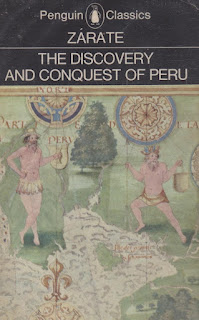 Grant by Ron Chernow
Grant by Ron ChernowMy rating: 5 of 5 stars
I took to myself to read a biography of at least one president every year and 'Grant' by Ron Chernow is what I chose for this year. And I am glad that I did that.
The US Civil war has been a favorite obsession of mine for years now. For the simple reason that the good vs evil narrative here has no greys. The colossus of this war is undoubtedly, Abraham Lincoln. And it is easy to see why. The man has no vices, has a moral authority which is hard to question, the kindness of heart he exhibited and the resolution to fight till the end he showed are astonishing.
However, the Civil war also brought forth deeply flawed individuals with strong moral conviction to the fight against slavery. The foremost in this list Ulysses S. Grant. He is probably the greatest general in the history at that time and the strangely western charm he brings in is hard to resist.
I've read about Grant only in the context of Civil war and the much scandalized presidency of his two terms. So I approached the book with a trepidation that the book might make him fall from the high pedestal I've put up for him. But I finished the book with exactly the opposite feeling.
The first 40 years of Grant's life feels like a terrible Dickens novel. There is so much of misery going on in his life, it is actually a wonder that he was able to sustain his life till that point.
The main reason for that sustenance is probably his love for Julia - whom he married, much against the wishes of his abolition-loving family and Julia's slave holding family. He remains amazingly steadfast in his dedication to Julia and there is multiple instances throughout the book where incident after incident, Julia comes out as someone who actually saves and anchors Grant multiple times.
Apart from Julia, not much of good happens to him. Barring a brief stint in the Mexican war, Grant basically lives off the land , mostly without any money to go around, leaving Julia and the children with his father-in-law. He wanders, tries out multiple jobs - succeeds in none and develops a drinking problem.
The Civil war brings in the right opportunity for him to shine with his leadership and strategy. Along with William T.Sherman, he racks up a series of victories in the western front, which brings him to the notice of Lincoln, who makes him the General of the whole army. He promptly defeats the south, is stunned by the death of Lincoln and decides to run for the president after the disastrous tenure of Andrew Johnson.
Grant comes out of the book as a valiant soldier, a very good man - with a set of moral values which is hard to come by, with a naive believer in men who gets swindled off by his closest friends again and again through his entire life. This gullible nature seems to be ingrained in him so much that even in his last days, he is willing to be swindled by his publisher until Mark Twain talks him out of it.
The perfect moral compass of Grant is unquestionable - though he seem to have a knack for having rogues and swindlers around him all the time. His commitment to the abolition of slavery and reconstruction is unassailable. It must've felt terrible to fight the same foes on the ground and in the Hill throughout his life.
Overall, I would say the book was refreshing in its views of Grant and the amount of information (given the size of the book!) is staggering and I almost ended up reading about most of the battles of the Civil war along side the book for a better understanding.
A very interesting and informative book.
View all my reviews

